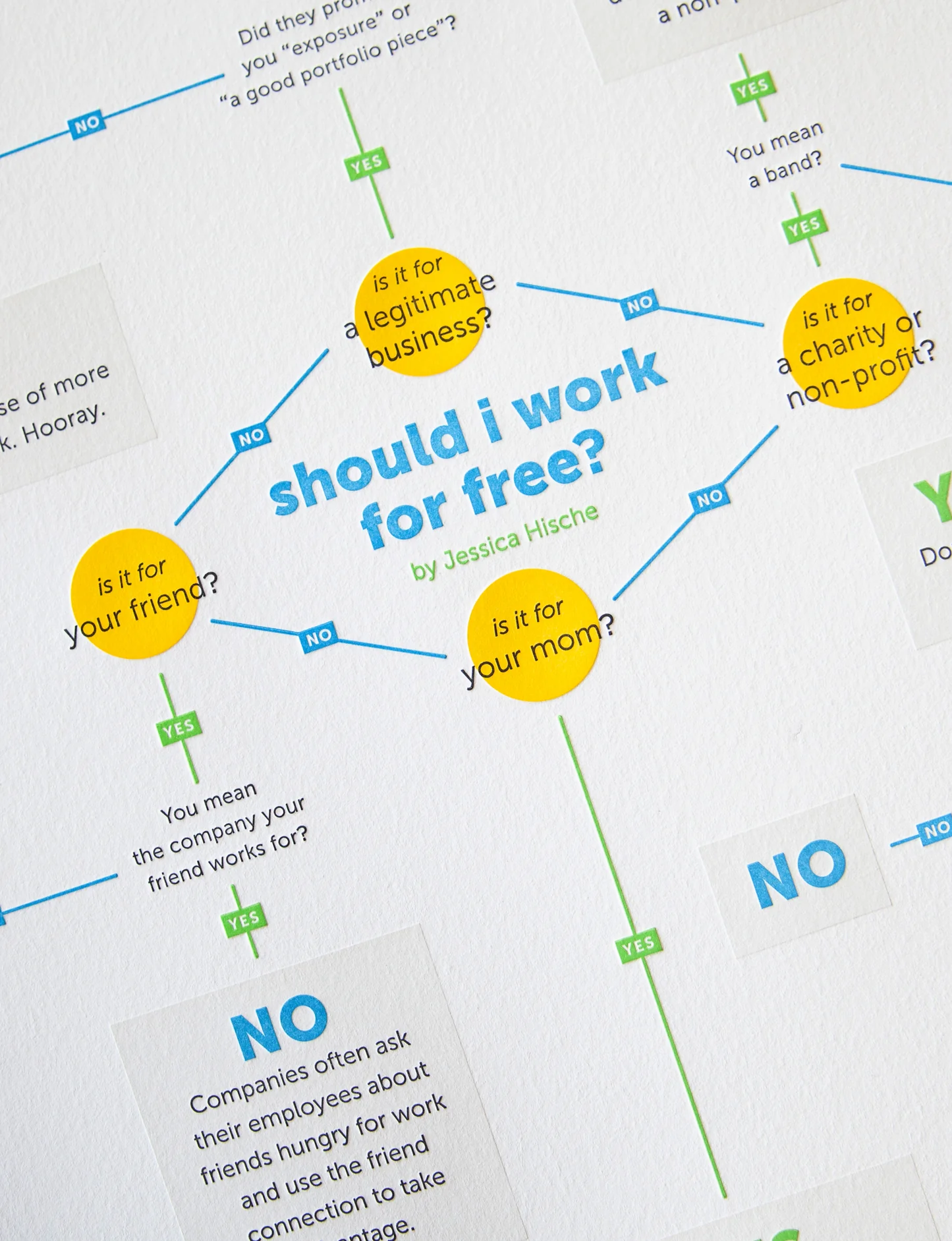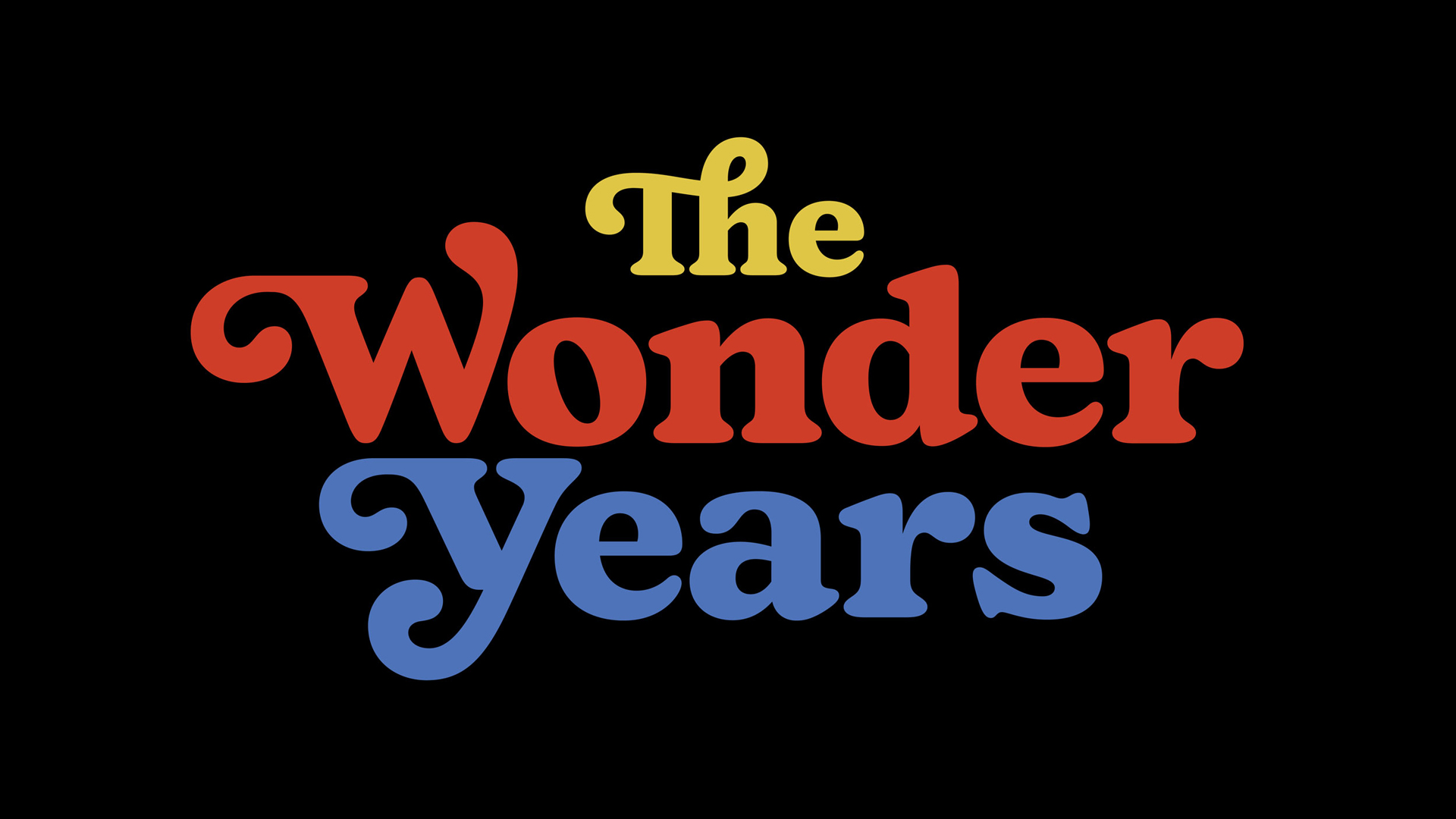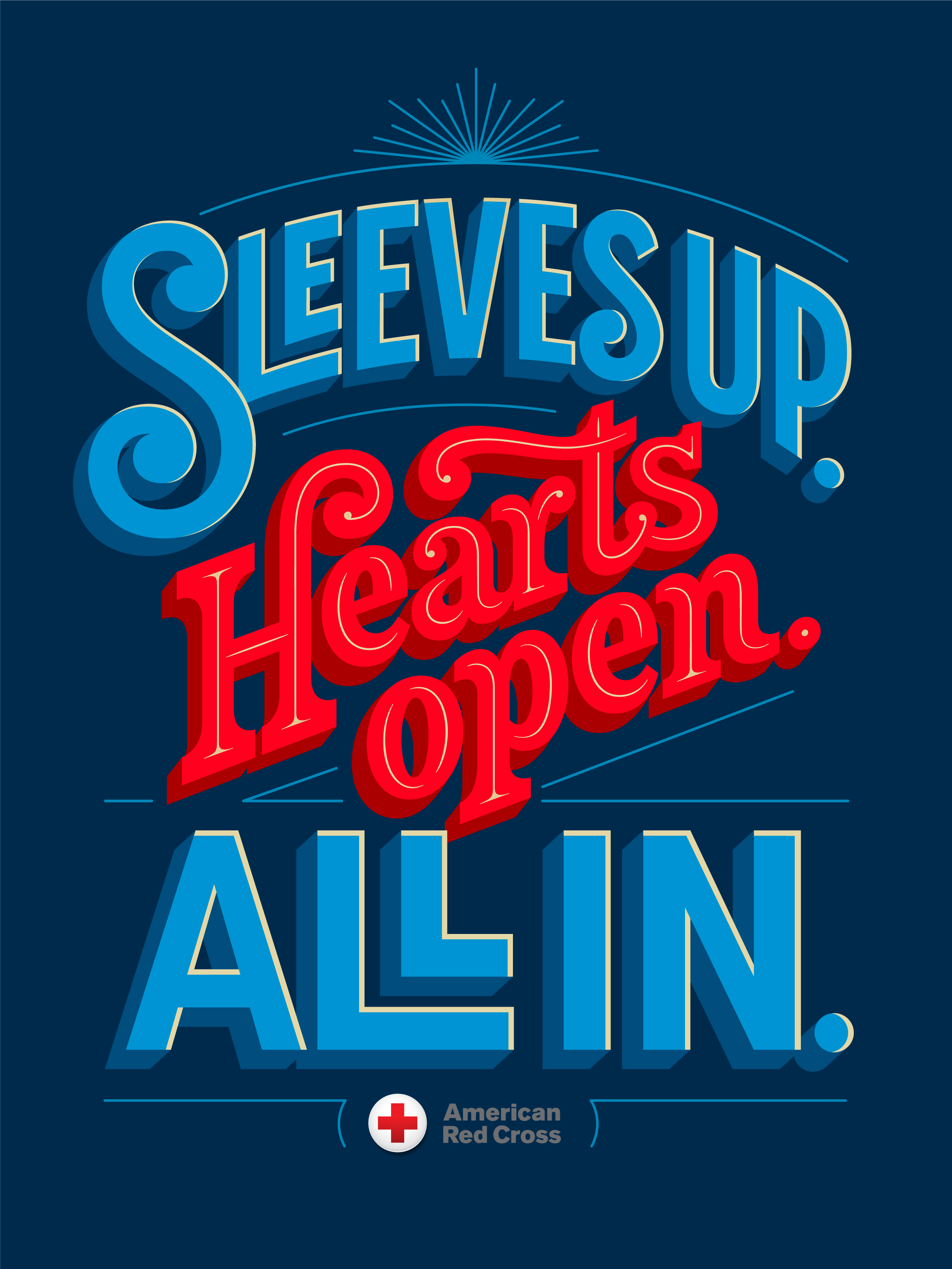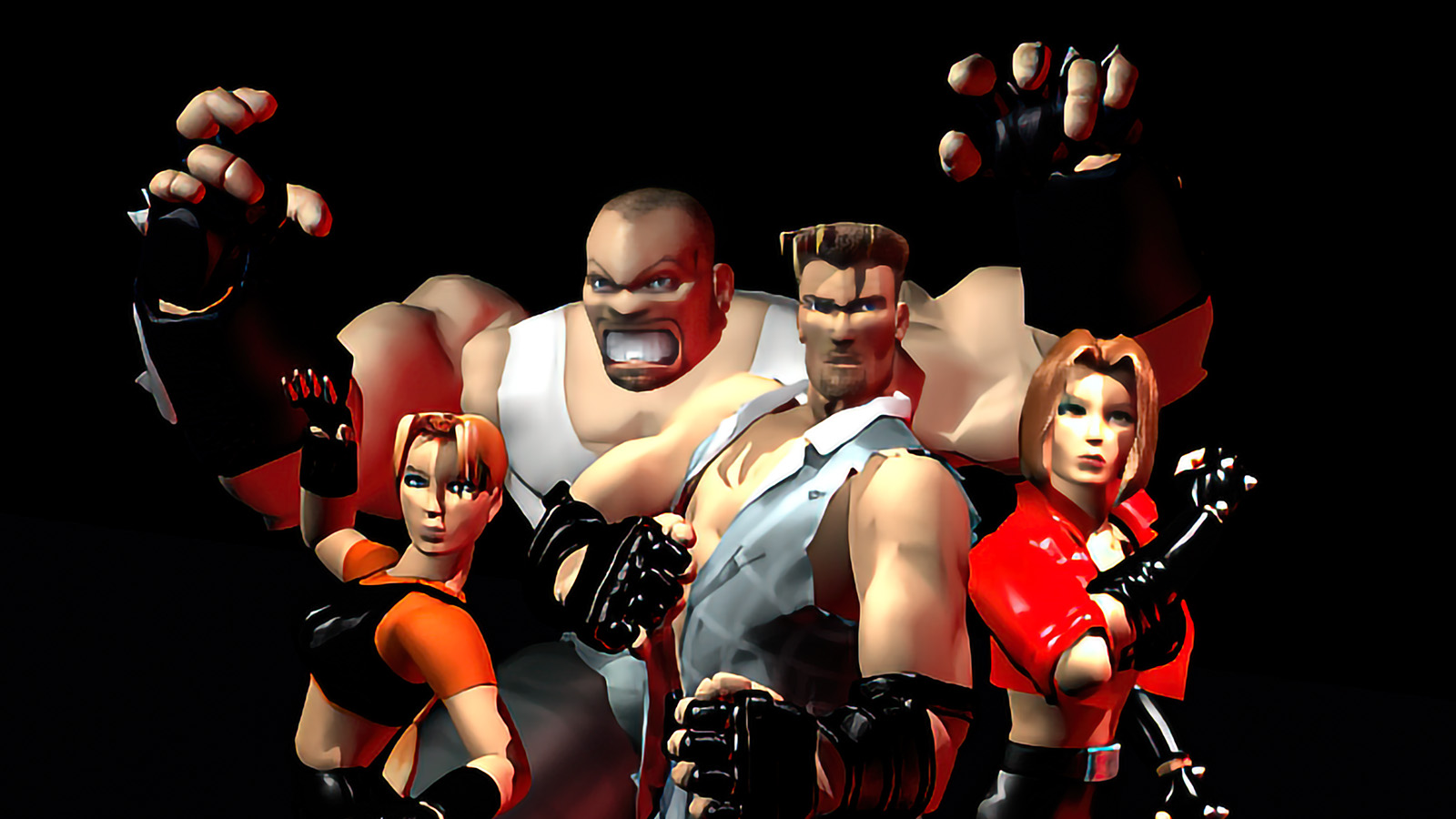Should creatives work for free? That depends, says Jessica Hische
Lettering artist shares how to navigate getting paid.
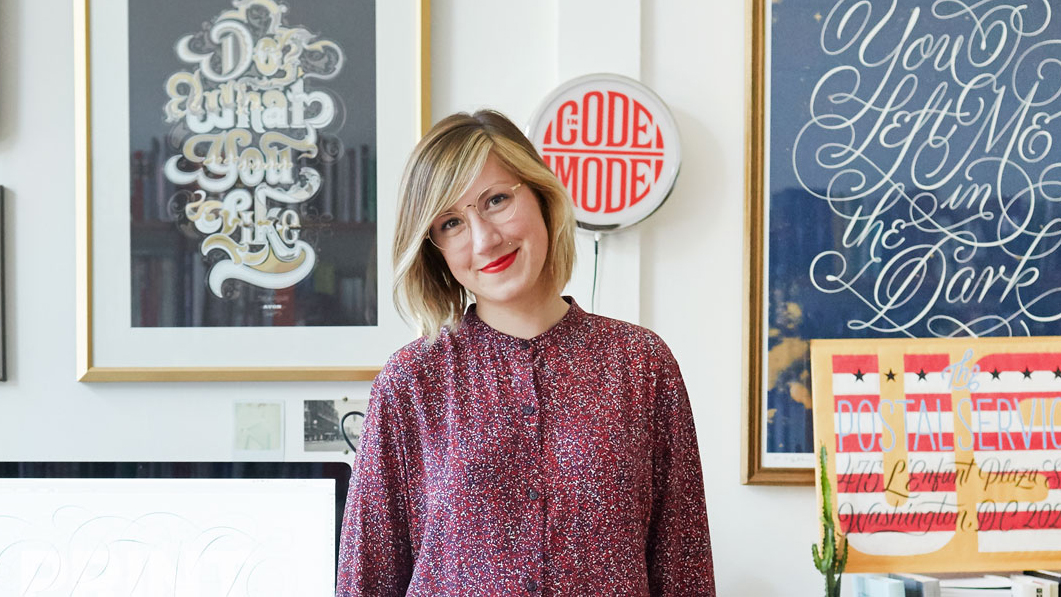
I recently met lettering artist and author Jessica Hische at design festival OFFF Barcelona. We spoke about everything from what it's like balancing being a mother of three with owning stores, working on lettering for big brands and films plus teaching and her new book, My First Book of Fancy Letters.
We also touched on a subject that affects many creatives: working for free. Jessica created a popular infographic on this very topic a few years ago, and its sentiment (and practical advice) still rings true today. First of all, I asked her if she's ever worked for free: "I definitely have worked for free," she said, "but I work for free when I walk into the situation with open eyes, and it's mostly for a friend or something like that." Instead of thinking of it as working for free, Jessica likes to consider it as more of "a barter of some variety", for example she might work on a logo for some motion artists who then create some motion work for her.
Working with "abysmal" budgets
"Otherwise, I do always try to get paid," she said, though admits that she's taken on projects before where the budget is "abysmal". "But usually I only do that if I just know that there is no money to be had, and they're not trying to take advantage of artists, it's just they don't have it for whatever reason," she explained. "There's a real difference between a massive company hard balling you about a shitty budget than a small place that doesn't have the capacity to have a high budget yet, but might in the future."
"Sometimes there can be a situation where you work for equity for a company, or you work for a low fee now and they tell you that you can charge your rate later." It's very different when it's amorphous and there's no real knowledge about what's happening, she added. "Because otherwise you're working for cheap and for more cheap work in the future... I always really try to see the whole picture before saying yes."
Why is working for free so common?
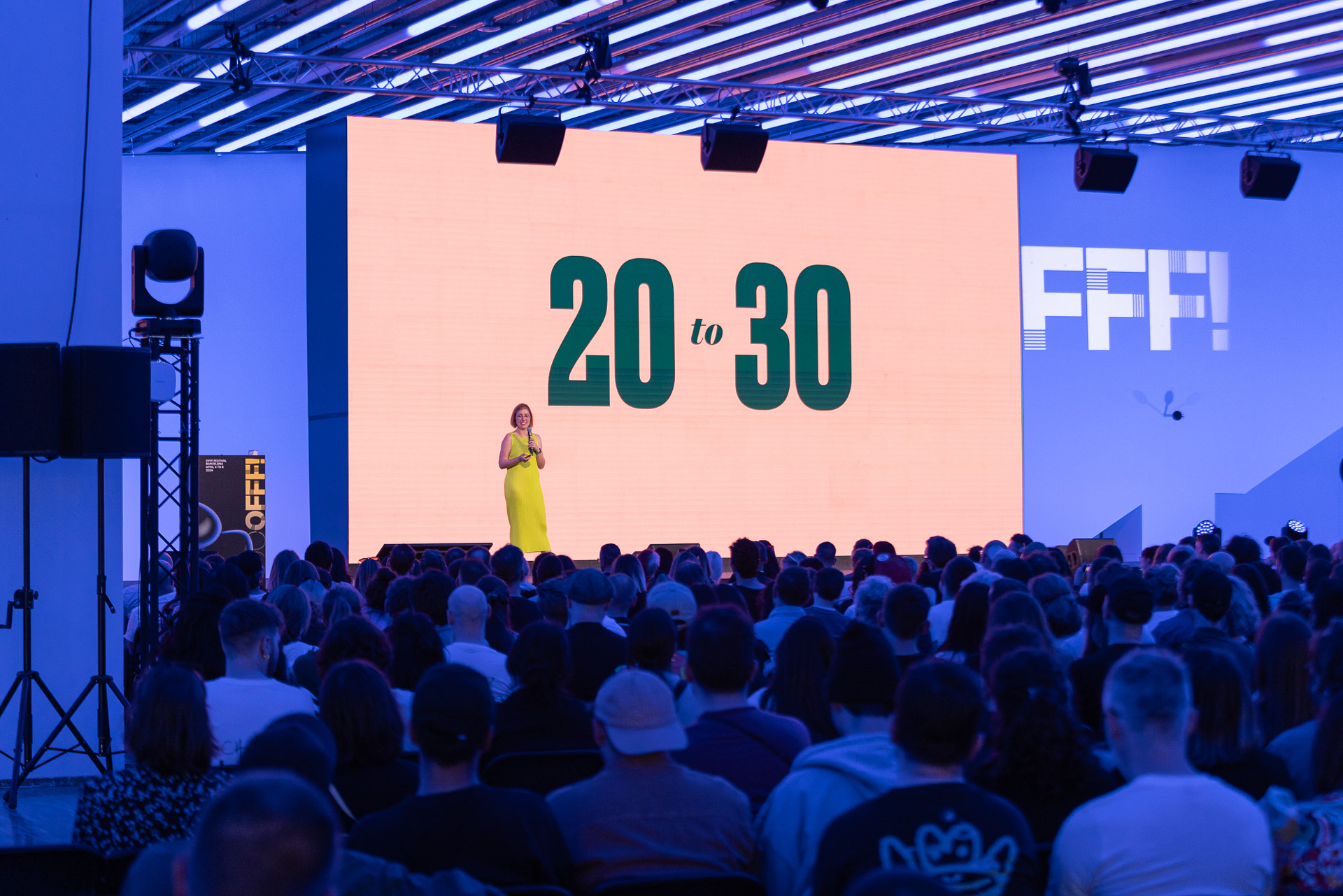
People think that if you're having fun, it's not a job
I asked Jessica why she thinks being asked to work for free is so common in the creative industries when compared to an industry like plumbing, and she said that "there are people in the world that think if you're having fun, it's not a job". What people don't realise though, she added, is there are plumbers or accountants that love their job. "My accountant is so obsessed with accounting that I can't get off the phone with him, because he just keeps wanting to tell me more about accounting. I think people forget that people are passionate about these more seemingly 'run of the mill' jobs, and that you should be paid even if you're passionate about your work."
The rate problem
She also added that "design is different because the rates are so varied", and continued with the plumber example: "if you think about a plumber, there are definitely expensive plumbers and cheap plumbers, but it's all within a pretty tight band of finances. Whereas for logo design, there are people that will design a logo for $1,000 and there's people who won’t design a logo for less than $60,000. So it's a massive difference."
It's so much easier to get paid if you can actually lay out the reasons why you should be paid
The problem also isn't helped by people not being very good at justifying why they should be paid. "I think a lot of creatives would benefit from understanding the rates that they're charging and why they are charging them," she said, and added that she's created an online course about this, which is now part of The Dark Art of Creative Business. "It's about being able to reverse engineer your prices based on your reality. So if a client comes to you and says, ‘oh my god this is outrageous, why are you charging $10,000 for this thing?’, you can go, ‘here's the work, here's the hours that I'm going to be spending on the work, here's the opportunity cost because I'm not doing this’, and you can really lay it out for them.
Daily design news, reviews, how-tos and more, as picked by the editors.
"It's so much easier to get paid if you can actually lay out the reasons why you should be paid and very few people do that," she explained. "What they do is they say things like, ‘Oh, this is industry standard’. And then the other people don't give a shit about industry standards. They’re like ‘I don't know your industry. This is my money, come to my standard’. So I think it's really important if you are pricing work with clients to be able to defend your prices and to have your reasoning for your prices, instead of just saying it's industry standard or that’s what the rate is."
Can agents help?
Does having an agent help creatives navigate all this? "Having an agent can help but they don't honestly do it that much," explained Jessica. "I think if you have an agent, the thing that helps is that there's a different person saying numbers to someone. That means they're less likely to say no to them, and they're less likely to argue with you about it.
"It's like if someone comes to you and says ‘can you please do this?’ And you say ‘no’, they go ‘but please’, they'll really come at you, especially if you're a woman. But if there's a third party saying ‘we can't do this’, there’s some distance. They don't try to make it an emotional decision of like, ‘oh, but this is so great, and I've loved your work forever, blah, blah, blah’. If there's another person delivering those numbers to them, they're like, ‘okay, well those are the numbers.’"
Stay tuned from more from our chat with Jessica Hische at OFFF Barcelona.

Rosie Hilder is Creative Bloq's Deputy Editor. After beginning her career in journalism in Argentina – where she worked as Deputy Editor of Time Out Buenos Aires – she moved back to the UK and joined Future Plc in 2016. Since then, she's worked as Operations Editor on magazines including Computer Arts, 3D World and Paint & Draw and Mac|Life. In 2018, she joined Creative Bloq, where she now assists with the daily management of the site, including growing the site's reach, getting involved in events, such as judging the Brand Impact Awards, and helping make sure our content serves the reader as best it can.
